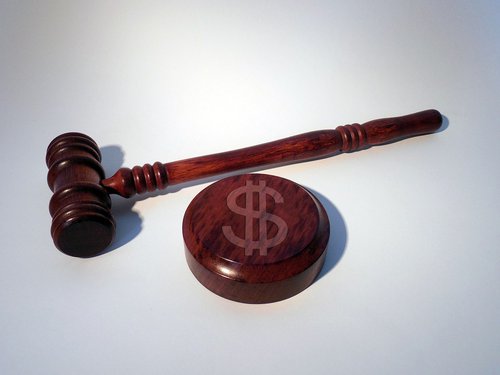
BANKRUPTCY LAWYER- WHEN BANKRUPTCY IS BEST
 If you pause for a moment to think about it, you will see that we live in a society that runs on debt. Mailboxes are full of credit card offers and television brings more ads that offer easy credit so you can purchase everything from a vacuum cleaner to a house that needs cleaning. The only problem is that easy credit will also lead to easy debt and that easy debt can pile up until you find yourself with more debt than you can quickly or easily pay off.
If you pause for a moment to think about it, you will see that we live in a society that runs on debt. Mailboxes are full of credit card offers and television brings more ads that offer easy credit so you can purchase everything from a vacuum cleaner to a house that needs cleaning. The only problem is that easy credit will also lead to easy debt and that easy debt can pile up until you find yourself with more debt than you can quickly or easily pay off.
If you are wondering if you might be in debt trouble, here are numerous a few signs that you might need help:
you are more than two months behind on your mortgage
you use one credit card to make the minimum payment on another card
credit collection agencies are calling daily
you have no idea how far in debt that you actually are
you have borrowed from a payday or auto title loan company
If any of the above signs apply to you, then a bankruptcy filing could be a needed option.
How the Bankruptcy Laws Work
The bankruptcy laws provide a way for a debtor to restructure or erase some types of debt. Depending on what type of bankruptcy you file, you could be debt free in just a few months. You can also file a type of bankruptcy that makes the bankruptcy court your only creditor. For individuals, the most common bankruptcy filings are Chapter 7 or Chapter 11 bankruptcies.
Chapter 7, also known as “straight bankruptcy,” is the most common type selected by individuals. Under Chapter 7 you can wipe out (in legal terms “discharge”) most of your unsecured debts, with certain exceptions. In general, these debts may include credit card balances, medical bills, collection agency accounts, and certain tax claims and back taxes. An immediate benefit of a Chapter 7 filing is that all debt collection and/or repossession proceedings will be blocked by the bankruptcy court.
Chapter 13, or “reorganization bankruptcy,” allows you to keep most of your property while you pay the bankruptcy court a fixed amount each month for the court to distribute to your creditors. These payments usually run for a period of 3 to 5 years and, at the end of that period, all remaining eligible debts are discharged. As with Chapter 7, all collection or repossession actions are blocked.
There are, however, some things that bankruptcy cannot eliminate such as back federal and state taxes, child support or alimony payments, or debt that is secured by property such as an automobile, boat, or recreational vehicle.
The downside of a bankruptcy is that it is entered into your credit record and will probably result in your being unable to finance a car or house for several years after your filing has run through bankruptcy court. It will also make it difficult for you to rent an apartment or any other type of rental such as furniture or appliances.
How A Bankruptcy Lawyer Can Help
As you can see, the bankruptcy laws can be both complicated and confusing. Bankruptcy may still be your only option but, to fully understand which type of filing is best for you, you should consider consulting a bankruptcy lawyer. These lawyers are aware of the latest changes in the bankruptcy laws as well as the various debt management and credit counseling programs offered by different community service groups that may be able to help you get a grip on your finances, both before and after declaring bankruptcy.
The decision to declare bankruptcy can bring immediate relief from your debts, but such a decision will also impact your personal finances for years to come. Before you make any decisions regarding bankruptcy, you should first talk with a bankruptcy lawyer to review the options that may be available to you.